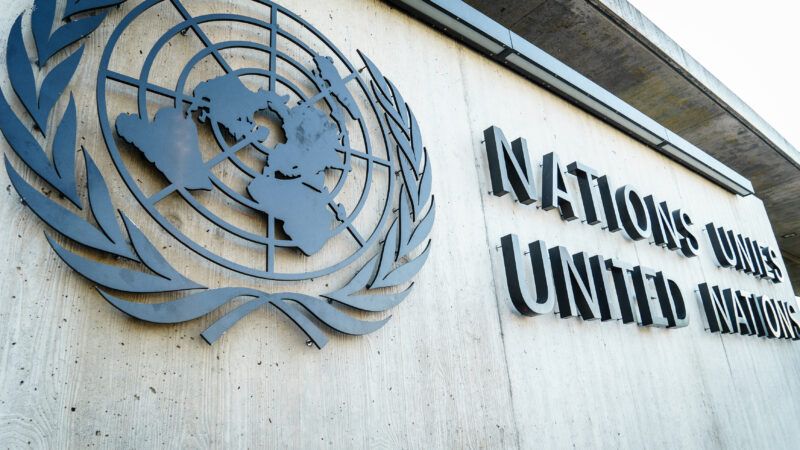U.N. Human Rights Officials Call For Investigation of Navalny Poisoning
They claim that only state actors could have carried out the assault on the Russian dissident.

Two United Nations human rights officials pressed today for an international investigation into the August 2020 poisoning of Russian political dissident Alexei Navalny. Only state actors, they claim, could have carried out the attack.
Navalny fell into a coma while on a domestic flight in Russia last summer. He was medically evacuated to Germany, where a novel form of the nerve agent Novichok was found to be in his system. Novichok is a banned neurotoxin developed by the Soviet and then Russian governments.
Agnès Callamard, the U.N.'s special rapporteur on extrajudicial, summary, or arbitrary executions, and Irene Khan, the special rapporteur on the promotion and protection of the right to freedom of opinion and expression, released a statement today calling for a "credible and transparent" investigation into Navalny's poisoning. They expressly accused the Russian government of culpability.
"We believe that poisoning Mr. Navalny with Novichok might have been deliberately carried out to send a clear, sinister warning that this would be the fate of anyone who would criticise and oppose the government," the statement says. "Novichok was precisely chosen to cause fear."
The officials claim that the use of the nerve agent and the attackers' expertise in handling the dangerous substance point to the Kremlin's complicity.
"Mr. Navalny was under intensive government surveillance at the time of the attempted killing, making it unlikely that any third party could have administered such a banned chemical without the knowledge of the Russian authorities," they wrote in a December letter to the Russian government.
After spending several months recovering in Germany, Navalny was arrested upon his return to Russia for violating the terms of his parole for a 2014 fraud conviction. The arrest sparked weeks of protests throughout the country.
Despite Navalny's argument that he had been taken to Germany while comatose, left the country as soon as he was medically able, and informed prison officials of his whereabouts, a judge still sentenced him to more than two and a half years in a penal colony.
Last week, Amnesty International revoked Navalny's status as a prisoner of conscience because of past comments the organization claimed "amounted to advocacy of hatred that constitutes incitement to discrimination, violence or hostility." (Navalny has used a derogatory term for ethnic Georgians, and he called for their expulsion from the country during Russia's war with Georgia in 2008. Navalny has since apologized for the epithet but has stood by several nationalist positions he has taken.) Amnesty International's definition of "prisoner of conscience" excludes those who have "advocated violence or hatred," and it has concluded that Navalny no longer makes the cut.
Nonetheless, the group continues to support Navalny's release. "There should be no confusion: nothing Navalny has said in the past justifies his current detention, which is purely politically motivated," the organization declared in an official statement. "Navalny has been arbitrarily detained for exercising his right to freedom of expression, and for this reason we continue to campaign for his immediate release."


Show Comments (56)